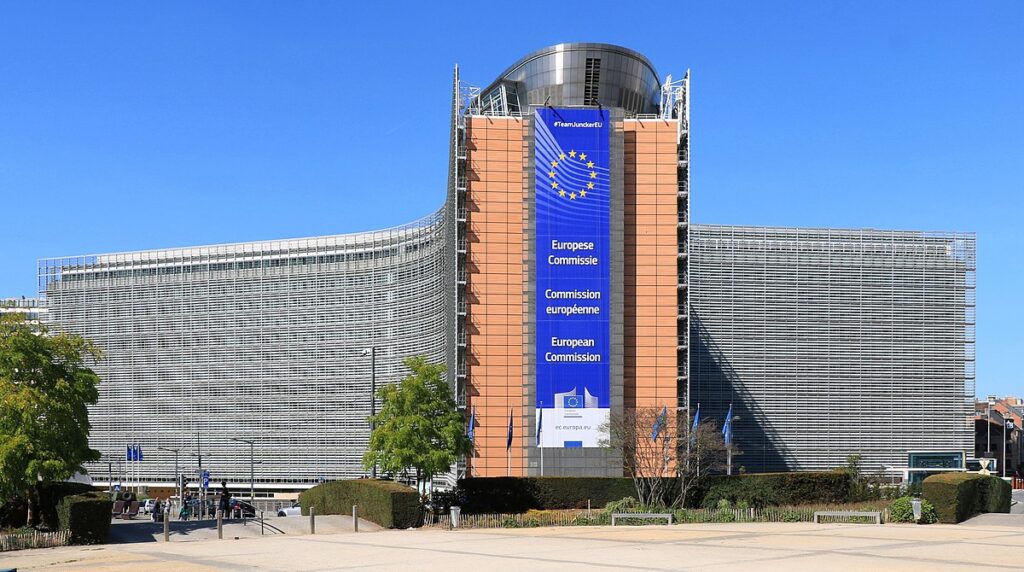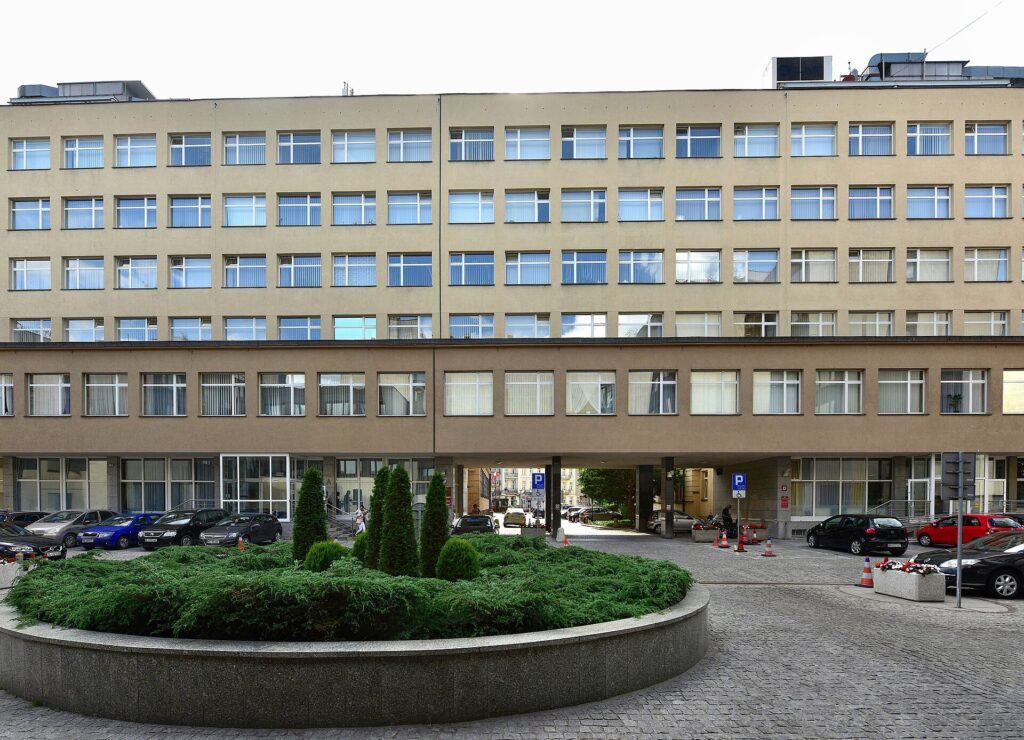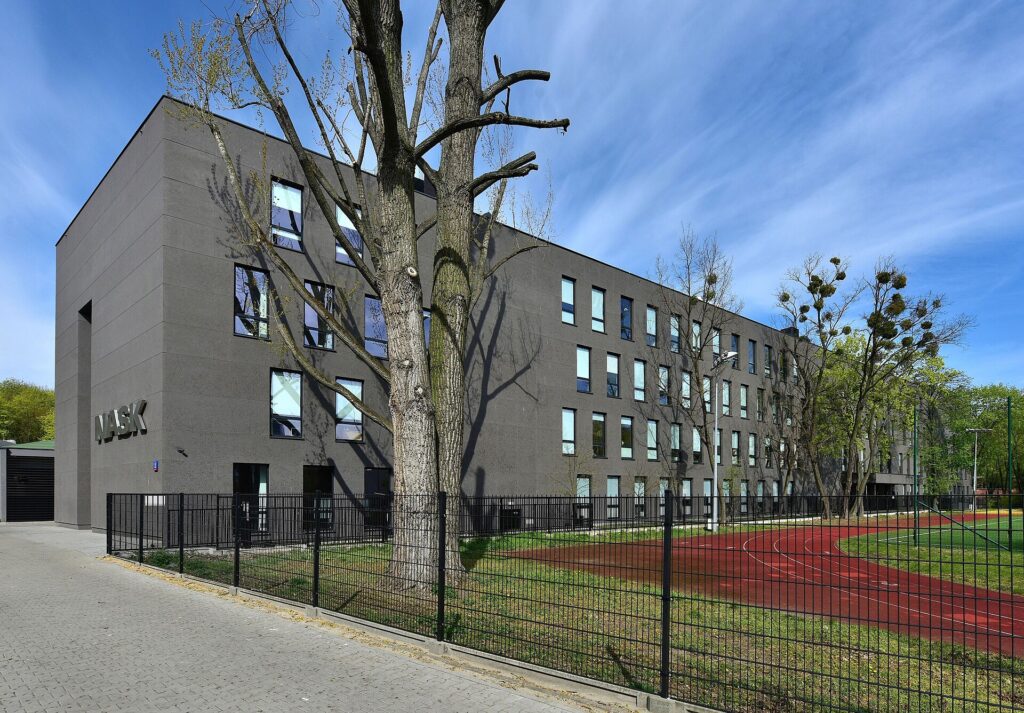• Members of the US House of Representatives have again asked the European Commission to take appropriate action in response to violations of the rule of law committed by Donald Tusk’s government. This time, the irregularities relate to the election campaign.
• The very next day, the European Commission stated that the electoral process is an internal matter for Member States and does not fall within the competence of the European Union. However, the Commission did not show similar resistance in relation to the presidential elections that took place in Romania.
• Meanwhile, in Poland, the Ministry of Digital Affairs and NASK refuse to publish a report on anonymous campaigns encouraging people to vote for Rafał Trzaskowski, which were allegedly organised by entities linked to the US Democratic Party. Instead, NASK is once again spreading misinformation, suggesting that a similar campaign is taking place in parallel, targeting Rafał Trzaskowski and supporting Karol Nawrocki.
Another appeal by congressmen
Barely two weeks ago (13 May 2025), members of the US House Judiciary Committee appealed to the European Commission to take appropriate action in response to the censorship tendencies of Donald Tusk’s government, including, in particular, attempts to silence political opponents.
The Commission had not yet responded to that letter when, on 27 May 2025, members of another House of Representatives committee, this time the Foreign Affairs Committee, wrote to the President of the European Commission, Ursula von der Leyen, asking what action she intends to take in relation to the irregularities occurring in the current presidential campaign in Poland.
The most important issue raised by the Congressmen is, of course, the question of the allegedly ‘pro-turnout’ campaign, which in fact encouraged people to vote for Rafał Trzaskowski, which was conducted before the first round of the elections. According to journalists’ findings, it turned out that the campaign was organised by the Austrian company Estratos, led by Hungarian opposition politicians and owned by a fund linked to the US Democratic Party. This company had already interfered in the parliamentary elections in Hungary in 2022 and in Poland in 2023, on the side of the then opposition. To this day, it is not known who directly financed the above campaign, including the spending of over PLN 400,000 on its paid promotion on Facebook.
This campaign may constitute an attempt to circumvent the provisions of the Polish Electoral Code, Article 132 § 4 of which prohibits the financing of election campaigns by foreign entities. In view of the above, the congressmen asked the European Commission to investigate who actually financed the campaign and whether this was done in accordance with Polish law, as well as to provide a thorough explanation of the role of the Austrian company and the American fund. The Americans also asked what measures the Commission intends to take to protect Polish elections from foreign interference in the electoral process, for example by entities linked to George Soros’s Open Society Foundations.
However, this was not the only issue raised by the congressmen. They also pointed to the refusal to pay election subsidies to Law and Justice by the Minister of Finance, Andrzej Domański. This action, which has no legal basis and is directly contrary to a binding ruling of the Supreme Court, has raised serious doubts among Americans about the fairness of the electoral competition between the ruling party’s candidate and the candidate supported by the Law and Justice party. In view of the above, the Congressmen asked the Commission how it intends to respond to the above action of Donald Tusk’s government and why it has remained silent on this matter so far, when it had no qualms about openly accusing the previous government of violating the rule of law and imposing sanctions for this reason.
As a particular example of the Commission’s hypocrisy in this regard, the congressmen pointed to the payment of €6 billion to Poland from previously suspended funds from the National Recovery Plan at almost exactly the same time as Minister Adam Bodnar illegally took over the National Prosecutor’s Office.
The Commission’s swift response
The very next day after the congressmen’s statement, according to media reports, the European Commission spokesperson suggested that the Commission would not take any action in response to the American appeal, as electoral processes are the exclusive responsibility of national authorities and are therefore not covered by EU law. He merely declared that the European Union was in favour of ‘free and fair elections’.
Of course, the spokesperson’s position on the lack of authority of EU bodies to take any action on national elections is legally correct. Nevertheless, it should be pointed out here that the European Union did not have such reservations in connection with the presidential elections in Romania, which were originally held in November 2024, when it launched formal proceedings against TikTok on suspicion that ‘foreign actors’ had used the platform to influence the outcome of those elections.
The role of the European Commission in those elections, which were ultimately annulled and repeated, has not yet been fully clarified and has become the subject of a complaint to the European Ombudsman.
Lack of explanation from NASK
Returning to the domestic scene, let us recall that the whole public scandal surrounding the pro-turnout campaigns began with a misleading statement by the Scientific and Academic Computer Network – National Research Institute (NASK) on the matter.
In this statement, NASK suggested, without any justification, that the spots encouraging people to vote for Rafał Trzaskowski and attacking Sławomir Mentzen and Karol Nawrocki were in fact a provocation aimed at the former.
After journalists revealed information indicating that the spots were produced by entities linked to political circles rather favourable to Rafał Trzaskowski, NASK did not modify the above suggestion in any way.
What is more, after journalists managed to establish that on 9 May NASK had prepared a comprehensive report on the campaigns in question, the Ministry of Digital Affairs and NASK refused to make the report public, citing its internal TLP: AMBER+STRICT classification. However, according to Article 5 of the Act on Access to Public Information, the right to information on public matters may only be restricted on the basis of statutory provisions, in particular on the basis of the Act on the Protection of Classified Information (which provides for the possibility of classifying documents as ‘strictly confidential’, ‘secret’, “confidential” or ‘restricted’) and not on the basis of internal designations of a given office.
At the same time, however, instead of disclosing the document, which may contain information about the campaigns in question that is unknown to the public, NASK decided to misinform the public once again. Namely, information about NASK’s analysis was leaked to the media, suggesting that, parallel to the ‘pro-turnout’ campaigns encouraging people to vote for Rafał Trzaskowski, there was a campaign led by the organisation CitizenGO encouraging people to vote for Karol Nawrocki and attacking Rafał Trzaskowski. However, the very next day, internet users determined, using publicly available tools on the Meta platform, that comparing these two campaigns was completely unjustified. The paid promotion of the CitizenGO campaign cost about 20,000 times less (sic!), namely the staggering amount of PLN 23.
Summary
It is regrettable that on the eve of the second round of the presidential election, there are still no signs of any action being taken by the relevant state authorities to investigate the campaigns run by anonymous profiles encouraging people to vote for the candidate supported by the current government.
It is also worrying that the scale of violations of the rule of law committed by this government has once again become a subject of concern for the international community.
Source of illustration: Wikipedia.



